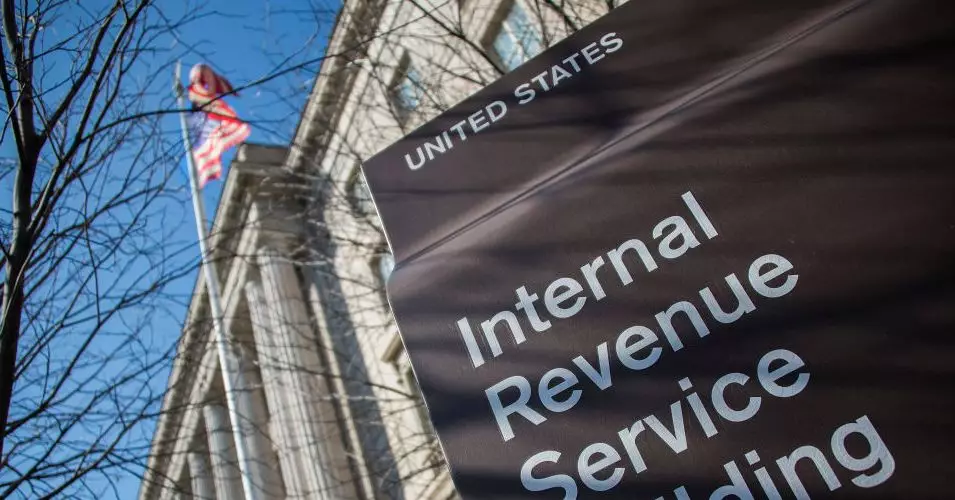In the technologically electrified age we find ourselves in, the lines between digital innovation and governmental oversight are beginning to blur. Enter Palantir Technologies, a company traditionally associated with data analytics for intelligence and defense sectors, which is now stepping into the taxpayer arena under the aegis of Elon Musk’s Department of Government Efficiency (DOGE). Their ambitious endeavor to create a “mega API” aiming to unify access to Internal Revenue Service (IRS) databases signals a critical juncture in how government agencies might operate.
The idea is simple yet convoluted: to consolidate the disparate reservoirs of taxpayer information into an accessible platform via an advanced API. While streamlining IRS operations could potentially foster improved service and efficacy, this raises alarm bells about who benefits from this immediate access. The vision of a single point of entry for all IRS data comes with the paradoxical risk of diminishing individual privacy amidst a supposedly more efficient system.
The Ethical Dilemmas of Centralized Data Access
This initiative has the makings of a double-edged sword. While it promises to make government operations more agile, the ethical ramifications are gargantuan. Utilizing sensitive data like taxpayer identities and financial transactions has always been a delicate dance between efficient governance and individual privacy rights. The hackathon setting—the brainchild of tech whizzes from both Palantir and the IRS—may have fostered creativity, but the unguarded approach to handling such precious data is reminiscent of a teenager’s reckless driving: thrilling, yet inherently dangerous.
The risks associated with this conjuring of a mega API cannot be overstated. Who will control access to this rich vein of personal data? The ramifications of unauthorized access could not only compromise individual liberties but also unleash a Pandora’s box of governmental overreach. Just what are we willing to trade for efficiency?
The Role of Profit-Driven Entities in Public Service
Critics of this partnership have a compelling argument—should a profit-focused company like Palantir wield such influence over public sector operations? The recent trend of hiring ex-Palantir employees for key governmental roles raises eyebrows and sparks conversations around the disturbing trend of corporatizing public service, risking accountability in the process.
Alex Karp, Palantir’s CEO, promotes the narrative that enhancing American institutions will ultimately serve the broader populace. Yet, this begs a crucial question: Is it sound policy to allow private enterprises to dictate the terms of public service? The delicate balance between efficiency and ethical governance hangs precariously as private interests increasingly shape public policy.
Time Constraints: The Risk of a Rushed Solution
With DOGE engineers proposing an ambitious 30-day timeline to develop this mega API, the speed at which this project is expected to unfold raises unsettling concerns about prioritizing innovation over thorough planning. Speed may be the currency of Silicon Valley, but government operations often require a more tempered and considered approach. The chaotic atmosphere of the hackathon, though enticing in its immediacy, could lead to fragmented outcomes, lessening the quality of the product despite its allure of rapid modernization.
Efficiency in government operations is a noble goal, but haste makes waste. Are quick fixes the right answer, especially when they involve sensitive taxpayer information? As much as we cherish expediency in our modern lives, the careful consideration of safety, ethics, and privacy must remain paramount.
A Future of Technocratic Governance?
As we stand on the precipice of this groundbreaking initiative, it’s evident that the intersection of technology and governance poses as many questions as it does solutions. It’s a trajectory poised to transform how citizens engage with their government, but embracing such a technocratic approach demands scrutiny. Accountability and transparency become critical buzzwords in this brave new world, as the potential to disrupt existing processes looms large.
For all the promises that a streamlined access point may hold, let us not get lost in the allure of technological wizardry. The implications of such a degree of access to sensitive personal data could redefine the landscape of governance at a foundational level. The balancing act between harnessing technology for the public good and safeguarding individual privacy rights is fraught with peril.
In this brave new world, we are once again reminded of an age-old maxim: with great power comes great responsibility. The partnership between DOGE and Palantir may well reshape our relationship with government, but whether that transformation will lead to a utopia of efficiency or a dystopia of surveillance remains to be seen.









Leave a Reply